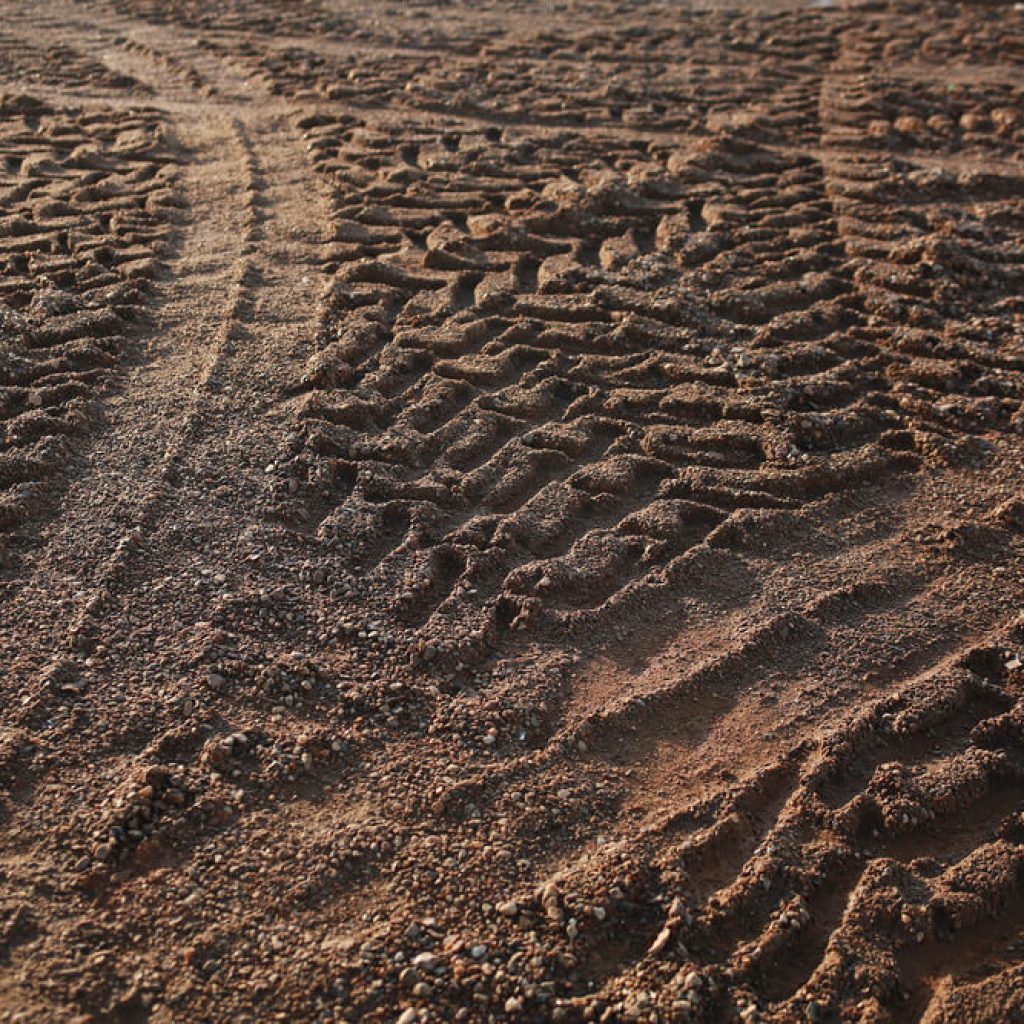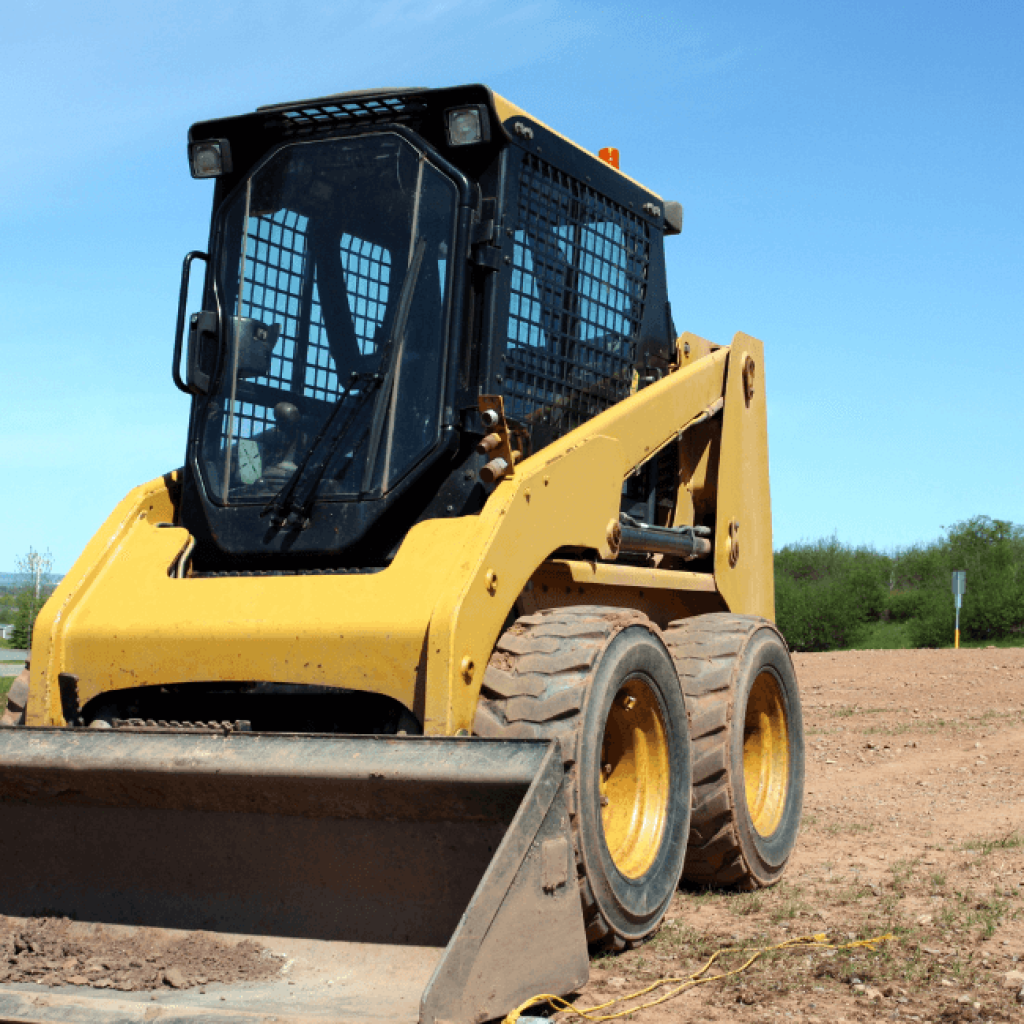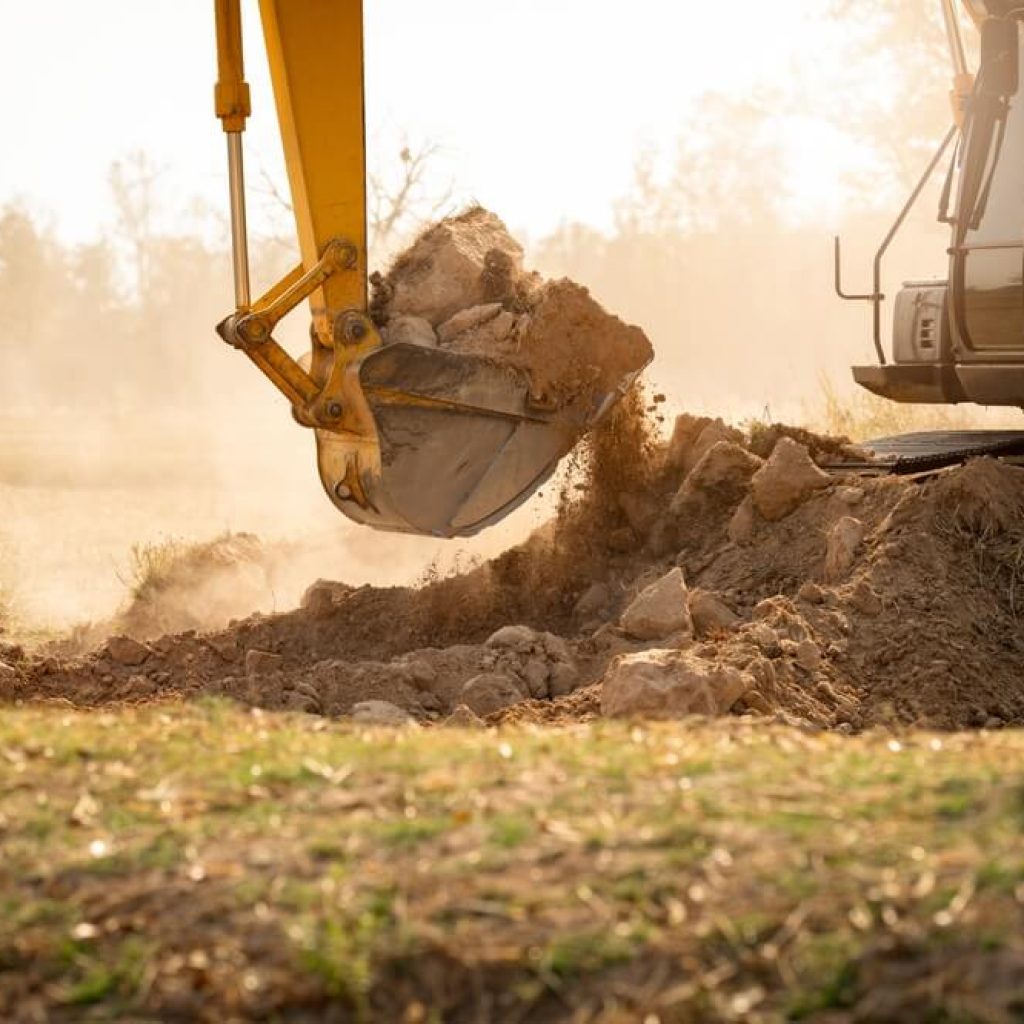
There are lots of options when it comes to construction equipment. Choosing the right machinery is essential for efficiency, productivity and safety. One of the choices you’re likely to come across when choosing a machine for your construction or DIY project is whether you need your equipment to run on tracks vs wheels.
Some of the most popular machines in construction and home renovation offer this choice, from excavators to loaders, skid steers to dumpers. There’s a lot of debate about whether tracks or wheels are better, but it’s probably not surprising that it’s not a simple choice. There’s a lot to consider, from the nature of the job to the terrain, your budget, and the rest of the factors involved in successfully carrying out the job.
If you’re trying to decide on tracks vs wheels, Ryno Hire is happy to help. Here’s our guide to the difference between the two and when you should choose each.
Tracks Vs Wheels: What’s The Difference?
While wheeled equipment has four or more individual wheels, tracked equipment has a continuous belt of material around two or more rollers. In a practical sense, the main difference is weight distribution. Wheels have smaller areas that come into contact with the ground’s surface as they rotate. The weight is evenly distributed across four points on the ground in what’s commonly called ‘four-point loading.’
Tracks are longer and broader than wheels, meaning they cover more area of the ground. This reduces the load transfer and creates lighter pounds per square inch (PSI). Tracks help equipment to hover above the ground rather than cut in like wheels do.
It would be a fair assumption that tracks provide better grip on the ground than wheels, but that’s not always true. While tracks are definitely better in slippery conditions or surfaces with loose material, wheels are better equipped for hard surfaces like concrete and asphalt. If you’re working in soft ground or mud, you’ll want to use tracks. The nature of the job (e.g. backfilling, digging, trenching, etc.) also plays a significant part in the choice between tracks vs wheels.
When Is It Best To Use Tracked Machinery?
Because tracks don’t dig into the ground, they do less damage to the surface than wheels do. They provide better stability and traction on rough terrain and improve power performance over large areas. On the downside, it tends to be slower than wheels and harder to transport.
Some jobs that tracked machinery are better suited for include:
Excavation
Crawler excavators, which have a long track undercarriage, are the most common kind of excavator. They are commonly used for demanding tasks like digging trenches and moving materials.
Earthmoving
Tracked loaders and dozers can capably move large quantities of dirt and materials, even on steep slopes.
Landscaping
The low ground pressure of a tracked loader reduces the risk of lawn damage when carrying out landscaping work.
When Is It Best To Use Wheeled Machinery?

Wheeled machines are lightweight, easy to move and often more affordable to buy than their tracked counterparts. On the downside, they get bogged down easier, wear out faster and can suffer punctures. Some situations that call for wheeled machinery include the following:
Work on hard ground
Wheeled equipment is built for use on concrete and other hard ground since tyres are made for these surfaces.
Inner city jobs
Wheeled machines are easier to transport through city streets and other urban environments where tracks might cause damage.
Transporting heavy materials
Wheeled machinery is a strong and sturdy option when you need to move heavy materials like wood or concrete for DIY and construction projects.
Large areas
Wheeled machinery is perfect for transporting material over large stretches (e.g. from one side of a huge construction site to another).
What Types of Machinery Offer The Choice?
Some common types of machinery that provide the option between tracks vs wheels include:
-
- Excavators
- Skid steer loaders
- Compact track loaders
- Bobcat loaders
- Cranes
- Forklifts
- Compactors (rollers)
- Bulldozers (dozers)
- Dumpers and mini dumpers
These machines (and others) are commonly used in industries like construction, landscaping, mining and agriculture, as well as DIY home projects of all kinds. There’s a lot to consider beyond tracks vs wheels when choosing the right equipment for your project. Fortunately, Ryno Hire can help you make the decision easier with our range of versatile equipment for dry hire.
Dry Hire Tracked and Wheeled Machinery at Ryno Hire

Ryno Hire offers reliable machinery hire in Brisbane, whether you’re looking for track or wheel options. A family-owned, locally operated business with more than a decade of earthmoving machinery experience, we offer our customers a vast selection of excavators, tipper trucks, loaders and micro loaders, compactors, mini dumpers, specialised attachments and more.
Ryno Hire specialises in providing cost-effective, easy-to-use machines for dry hire. You can rent our machines for as little as a day or as long as a year. All you need is a current Australian open driver’s licence.
A mini dumper hire from Ryno Hire is the perfect choice when you have materials to move and confined spaces to work with. Smaller than a dump truck but larger than a standard wheelbarrow, this handy piece of equipment suits home landscaping, construction and tight access excavation work.
If you need an excavator rental, Ryno Hire has diggers of all sizes to accommodate the different kinds of projects you may want to do. We have everything from one-tonne excavators ideal for little landscaping jobs all the way to eight-tonne units built for big jobs like building rock walls.
Ryno Hire provides both skid steer loaders and posi-track loaders so you can carry out tasks on either soft grass or hard and rocky ground. Our bobcat hire options suit a range of jobs like gardening, earthmoving, construction and site clean-up, and they come with a range of attachments so you can use them for lifting, digging, hauling and more. To find out more and for help choosing the right earthmoving machine, contact the Ryno Hire team.


